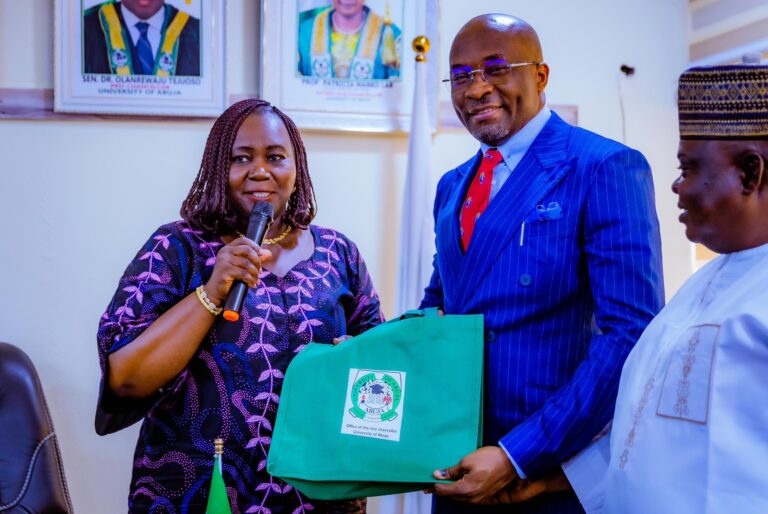Deputy Speaker of the House of Representatives, Rt. Hon. Benjamin Okezie Kalu, CFR has bagged a Doctor of Philosophy (PhD) in Policy and Strategic Studies (PSS) from Yakubu Gowon University, formerly University of Abuja.
The Deputy Speaker who represents Bende Federal Constituency of Abia State holds a Bachelor of Laws, (LL.B) and a Master of Laws (LL.M) from University of Calabar while currently pursuing his Doctor of Laws (LL.D).
Kalu who is a member of ECOWAS Parliament, Pan-African Parliament (PAP) and Inter-Parliamentary Union (IPU) also holds a Certificate in Migration
and Human Rights from John Cabot University Campus, Italy; Certificate in Illicit Trade from University of Groningen, Netherlands; Certificate in Governance & Development Program from Miami Herbert Business School, Miami
University, USA; Certificate in Environmental Crimes from United Nations Interregional Crime and Justice Research Institute (UNICRI), Italy; Property Services (Real Estate) CPP40307 certificate IV, Leverage Academy, Sydney NSW, Australia and Diploma in International Commercial Arbitration from the Chartered Institute of Arbitrators, United Kingdom (CIARB), University of Oxford, England as well as Master of Business Administration (MBA) from Oxford Brookes University, United Kingdom.
He also holds the membership of OSHAssociation UK and the Chartered Institute of International Arbitrators
(CIARB UK).
Kalu, a cerebral lawyer and vibrant lawmaker with over 100 bills to his name in the current 10th National Assembly, attended the Nigerian Law School, Enugu Campus and was subsequently called to the Nigerian Bar many years ago.
Titled “Government Capacity to Integrate International Climate Adaptation Strategies and Policies in Nigeria”, Kalu’s doctoral thesis at the University of Abuja examines government capacity to integrate international climate adaptation strategies and policies.
The academic research also addressed a critical gap in understanding how developing nations like Nigeria can effectively respond to climate change challenges.
Essentially, the research emerged from the pressing need to enhance Nigeria’s resilience against increasingly severe climate impacts, which have manifested in devastating floods, prolonged droughts, and widespread food insecurity across the nation.
“The Nigeria’s climate vulnerability is multifaceted. The northern regions experience prolonged droughts, contributing to desertification and diminishing agricultural productivity.
In contrast, the southern coastal areas face rising sea levels, increasing the risk of coastal erosion and flooding, which threaten livelihoods and infrastructure.
“Additionally, the country’s heavy reliance on rain-fed agriculture makes it particularly susceptible to climate variability, affecting food security and exacerbating poverty.
“These environmental challenges have reached alarming proportions, with the 2024 flooding events alone damaging over 1.5 million hectares of cropland across 29 states, affecting more than 9 million people, and contributing to acute food insecurity for approximately 25 million Nigerians – a number projected to rise to 33 million by mid-2025”, Kalu posited in the background to his study.
Following his successful thesis defense, Kalu was later received by the Acting Vice Chancellor of the university, Prof. Patricia Manko Lar in her office.
Expressing his gratitude to the university authorities and the scholars, Kalu attributed his doctoral achievement to the quality education he received at the university in the course of his lectures, emphasizing that it has equipped him to make more meaningful contributions to Nigeria’s development.
Levinus Nwabughiogu, Chief Press Secretary to the Deputy Speaker,
in a statement quoted Kalu as urging Nigerians to consider local institutions of higher learning for further academic pursuits, highlighting their potential to foster national growth and development.
He said: “While we have opportunities to study overseas, it’s important that we look at the institutions that we fund as governments, especially being in the government at the moment. It increases the integrity, incredibility of the local institutions.
“I came here also to inspire a lot of people who don’t want to study because they have not gotten visas to go overseas. I came here to inspire the younger generations that what they are looking for out there is actually here.
“I have studied in institutions around the world and I can tell you I sat in their lectures, under their guidance and they delivered quality. I did not come to school as a Deputy Speaker. Most of them didn’t know I am Deputy Speaker. l will wear my face cap and my T-shirt and I will attend classes. And I will sit at the back of the class, cover my face. You wouldn’t know that I’m the Deputy Speaker, seating there. They only found out towards the end of my studies because I wanted to be treated the same way as others and they treated me equally, even up to the examination that took place few minutes ago.
“And that is the spirit that will enable you to learn from those who have gotten what you are looking for. I want to thank you for your sacrifices to deliver the quality lectures you have delivered.
“I did not come to University of Abuja to acquire a title. I came to pick up instruments, I came to pick up bricks that would help in our nation building efforts. I came to pick up a tool, and I chose climate change, because I know Nigeria is losing alot because of our lack of capacity to integrate the international policies and strategies within our national policy framework. And I have gotten it through your efforts. I have gotten it and so I am declaring this University a solution hub to the hydra-headed problems of Nigeria.
“Universities are not for funfare. Universities are there to help the nation grow and I can assure you what we have tinkered out in the cause of this research and these discussions, you be hearing it in the National Assembly to show that this university is contributing to our nation building, I want to thank you”

